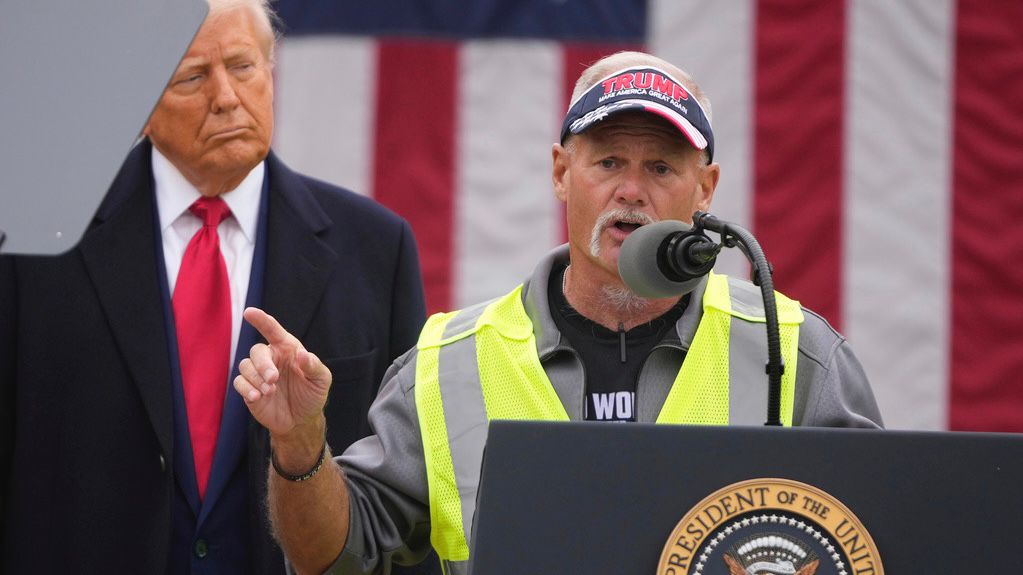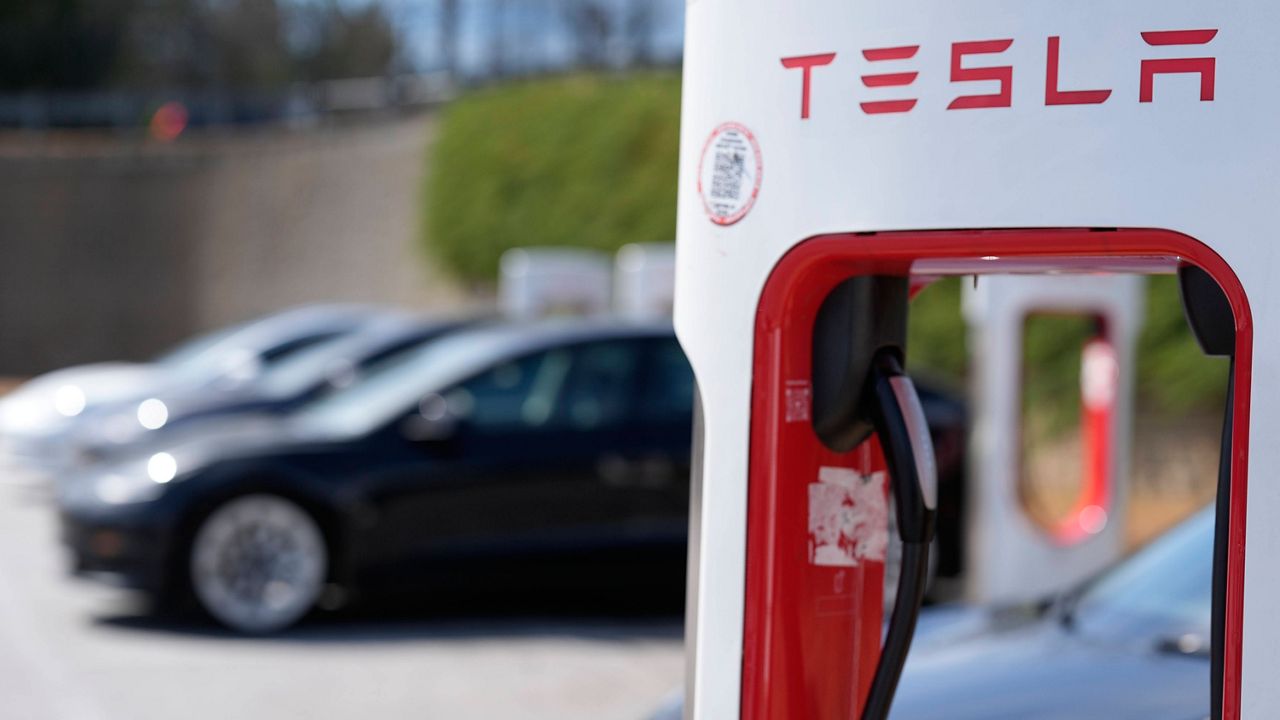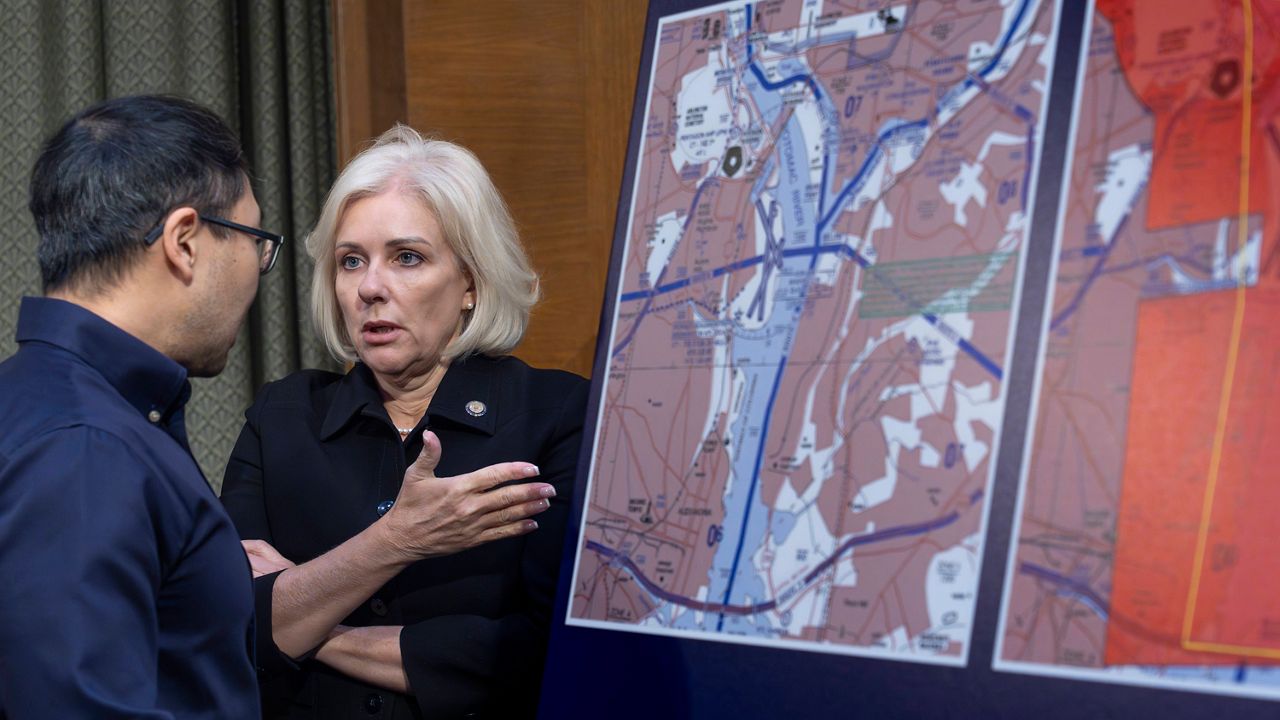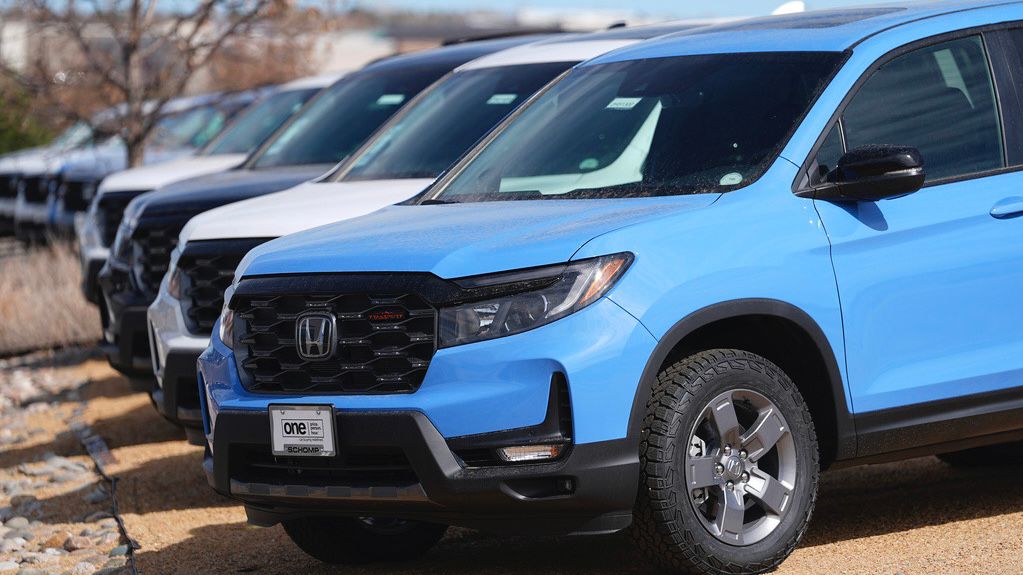As President Donald Trump announced sweeping new tariffs on global trading partners Wednesday, sources familiar with the United Auto Workers’ stance said the new import taxes hold the potential to improve worker pay and rights and help the transition to less-polluting vehicles in other countries as well as the United States.
With a 25% tariff on foreign-made cars taking effect at midnight Wednesday and a 25% tariff exemption on goods from Canada and Mexico, including cars, expiring on what Trump has called “Liberation Day,” the union has called for a renegotiation of the United States-Mexico-Canada Agreement Trump signed during his first term, saying it’s prompted the loss of good auto jobs throughout the country.
“My entire life I have watched plant after plant after plant in Detroit and in the Metro Detroit area close,” retired autoworker Brian Pannebecker said at a White House Rose Garden event where President Trump announced his long-awaited reciprocal tariffs. “There are now plants sitting idle. There are now plants that are underutilized. And Donald Trump’s policies are going to bring product back into those underutilized plants.”
Since the North American Free Trade Agreement took effect in 1994, 90,000 factories have closed and 5 million durable goods industry jobs have been lost, according to the White House.
UAW sources said increased taxes on imported goods present an opportunity to develop durable trade agreements that can bring back good-paying American jobs and strengthen labor protections. Within months of new tariffs taking effect, the sources said car companies making vehicles in the United States could bring back tens of thousands of jobs in multiple existing factories that have excess production capacity.
"Tariffs are a tool in the toolbox to get these companies to do the right thing, and the intent behind it is to bring jobs back here," UAW president Shawn Fain said on CBS News' "Face the Nation" on Sunday. "There's two parts to the tariffs though... We have to fix the broken trade laws. And the other thing to me is... they got to be good paying union jobs that set standards."
The UAW sources agreed with the assessment of Trump’s senior counselor for trade and manufacturing Peter Navarro who said 60% of auto facilities in the United States have excess capacity. Some of that capacity could be brought online as soon as this week, while others could take months, according to the UAW.
In 2024, 54% of passenger vehicles sold in the United States were made in the U.S., 23% were built in other countries, 7% came from Canada and 15% were from Mexico.
While the UAW sources said the group does not agree with Trump’s use of the International Emergency Economic Powers Act to impose tariffs on Canada and Mexico, as Trump did in February to gain neighboring countries’ help with border security and illegal fentanyl crossing into the United States, they do support the 25% tariff on aluminum and steel imports from all countries that the president imposed last month.
The sources said the UAW also supports the 25% across-the-board tariff on goods from Canada and Mexico that do not comply with the U.S.-Mexico-Canada Agreement Trump negotiated during his first term, as well as the 25% tariff on foreign-made cars that takes effect at midnight.
The reciprocal tariffs Trump announced Wednesday on trading partners that also import cars to the United States were generally similar to the blanket 25% tariff on foreign-made vehicles he announced last week. The U.S. will charge the EU 20%, South Korea 25%, Japan 24% and the United Kingdom 10% on imports other than vehicles.








